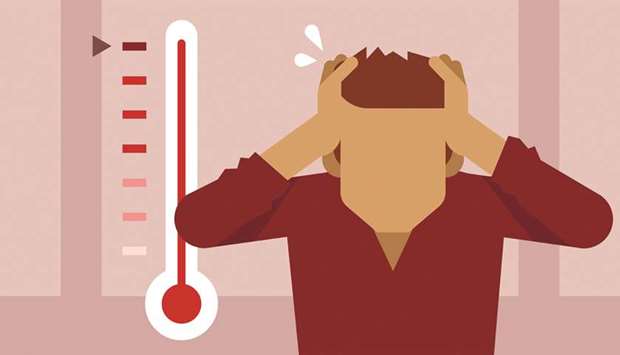It’s easy to feel hijacked by our anger. After all, anger was one of the primary evolutionary feelings: it was designed for survival. It knows only on and off. But this means that once the trigger is pressed, often by a trivial event, we end up in noise and miss out on the detail and complexity of our humanity. Our capacity for empathy is reduced and we want only to survive, hide, hurt, blame or punish.
Anger can drive terrible deeds and behaviours. But it can also be a force for good. It plays out in both healthy and dangerous ways. It drives athletes, philanthropists and protesters, as well as killers and abusers. We usually focus on the ‘bad’ behaviours that come with anger, such as losing your temper, bullying or being heavily critical or sarcastic. But anger itself is just a feeling, not a behaviour.
Ultimately, anger is part of our humanity. Denying it will not make it go away; it creates shame, fear and even more anger. We can change our relationship with anger simply by treating it as a source of valuable information about ourselves and how we see the world.
Tip 1
Don’t get angry about being angry
Anger has a bad reputation. Often, when we are angry, we tell ourselves we shouldn’t be; that feeling angry is somehow bad. Then we get angry with ourselves for being angry and feel ashamed – it’s an inexorable cycle.
Anger can be isolating and the experience of sitting in a group with other ‘normal’ people who all suffer with their anger is transformative. I see this all the time in my groups: the moment you realise ‘it’s not just me’ can be life-changing.
Tip 2
Take a ‘reality check’
Anger is designed to tell us something is wrong. It’s often triggered by perception rather than the truth.
Imagine, for instance, that a colleague is late for a meeting and you get angry because, to you, this means they don’t respect you. The reality may simply be that the traffic was bad, but by the time they arrive you are ready to punish and shame them for their “crime”. Is there any real evidence that your colleague doesn’t respect you? Ask yourself if your opinion is accurate or merely your version of the truth.
Tip 3
Be aware when anger is out of proportion to events
Sometimes small events trigger significant anger. This usually means that the anger is not about what is happening in the present.
Each of us carries a ‘sack’ of anger and history with us, and disproportionate anger tells us this has been triggered. Generally, your colleague’s lateness, or the washing up not being done, are not really big deals and won’t be important by tomorrow. It certainly doesn’t merit much anger. If your anger is out of proportion, it tells you that it is nothing to do with the present event. Recognising this can help you contain the feelings and not act them out.
Tip 4
Be clear about what you feel and what you want
How often do you avoid expressing your own needs for fear of rejection?
I might want a hug, but in not asking for one I create an experience of hurt, anger and rejection. The truth is I have rejected myself though I may blame you, because in my head you should have guessed what I wanted. The truth is that I am angry with myself for not asking and angry with you for not guessing. By letting others know how you feel and what you need, you are less likely to fuel your anger and hurt.
Tip 5
Recognise when you take things personally
Recognising when we make things personal (‘all about me’) can help reduce anger levels significantly. This is typical of road rage, when we make being cut up by another motorist a personal attack.
Tip 6
Keep expectations realistic
Unrealistic expectations can create barriers to communication and intimacy. I often see this in couples.
When we demand that the other person makes up for what we lacked in childhood, we set them up to fail and condemn ourselves to conflict and disappointment. When I have unrealistic expectations of others, I miss who they really are.
Tip 7
Acknowledge and respect difference
Remember the childhood game, rock, paper, scissors? Ask yourself – which one am I? Which one is my partner? Then ask yourself how does a rock relate to scissors/to paper? To another rock? Once you recognise difference, you can start to respect it and see yourself and the other person in a clearer light. Difference, when acknowledged, engenders vitality and binds people more closely.
Tip 8
Confront your inner critic
Many of us carry an inner critical voice that berates us, constantly telling us we are not good enough. This voice feeds on the fact that we do not question it. It is usually derived from childhood experiences we have internalised. It becomes so ingrained that we cannot separate it from ourselves.



